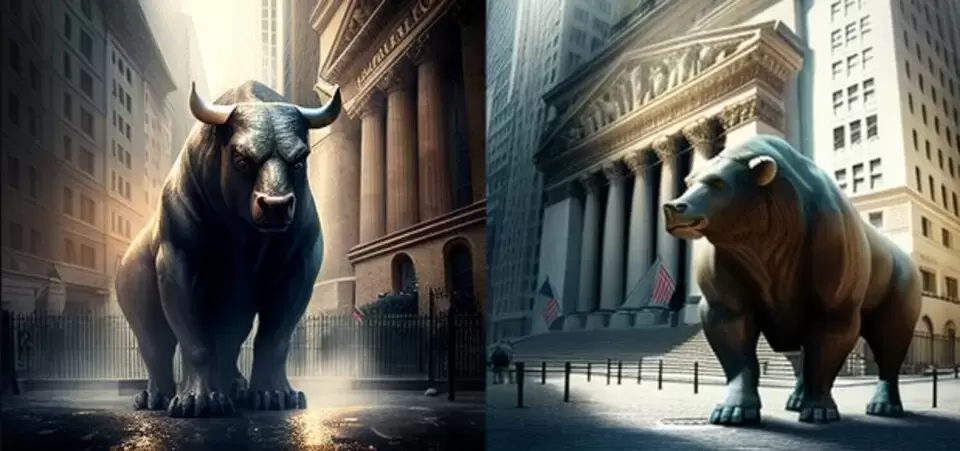
Stock Market vs Bond Market: Where Should Investors Put Their Money?
Keypoints:
- The bond market is signaling an economic slowdown, causing concern for the future of the stock market.
- Government bonds are becoming more attractive than stocks in terms of valuation.
- The long-dated bond ETF's 50-day advance suggests that markets are worried about an economic contraction.
B ond market signals economic slowdown, leaving investors questioning the future of the stock market.
The tech-led rebound on Friday couldn't undo the damage done to the broader market by increasingly dour signals on the economy, many of them originating from bonds.
The 2023 surge in the S&P 500, spurred by speculation that inflation is cooling, started showing cracks as focus shifted to prospects of an economic contraction. Anxiety that the Federal Reserve's campaign of rate hikes has gone too far looms ever larger in the Treasury market, whose three-month trouncing of riskier assets reflects stiffening bets on a slowdown.

What´s Going on?
Despite rallying to start the year, government bonds continue to represent legitimate competition to stocks in terms of valuation. A rough comparison of yields suggests the recovery in Treasury prices has room to run when viewed next to a still-expensive equity market.
David Spika, president and chief investment officer of GuideStone Capital Management, said in an interview, "We believe that the S&P in particular is trading at valuations that are not appropriate with what we're likely to see from earnings. Bonds are still expensive, but relative to stocks, they're much more attractively valued."
The $32 billion iShares 20+ Year Treasury Bond ETF has climbed 6.7% in 2023 as investors seek safety in long-dated government securities, versus a 3.5% rise for the $365 billion SPDR S&P 500 ETF Trust. That sets the long-dated bond ETF up for a third straight month of outperformance relative to the S&P 500 ETF, the longest winning streak since 2020.
Even after 2022's historical selloff, the so-called Fed model, which plots the S&P 500's earnings yield against the yield on 10-year Treasuries, shows that bonds are still inexpensive compared to equities, at least by recent history.
Relative to its price, the S&P 500 "pays out" roughly 5.2% in earnings, versus roughly 3.5% on the benchmark US bond. That's close to the slimmest advantage for stocks in the past decade.

A Near Future
JPMorgan Asset Management Institutional Ownership show the attractiveness of bonds going into the rest of 2023.
The debt market's dominance so far stacked against still-expensive equities has some portfolio managers advocating for a twist on the classic 60/40 investing approach: switch the components around and put most of the money in bonds. However, it's worth noting that while bonds may be cheaper relative to stocks, they're still expensive on an absolute basis.
In conclusion, while Friday's tech-led rebound was a welcome sign for investors, it couldn't undo the damage done to the broader market by increasingly dour signals on the economy, many of them originating from bonds. Government bonds continue to represent legitimate competition to stocks in terms of valuation, and the Treasury market's three-month trouncing of riskier assets reflects stiffening bets on a slowdown.

Open Data
The long-dated bond ETF's 50-day advance of 12.5% or more suggests that markets are concerned about an economic contraction. Despite this, the Fed model shows that bonds are still inexpensive compared to equities, and some portfolio managers are advocating for a twist on the classic 60/40 investing approach, putting most of the money in bonds.
However, it's important to note that while bonds may be cheaper relative to stocks, they're still expensive on an absolute basis. As the year progresses, investors should keep an eye on the economy and the bond market, as they may provide crucial signals on the future of the stock market.
Share Share Share
